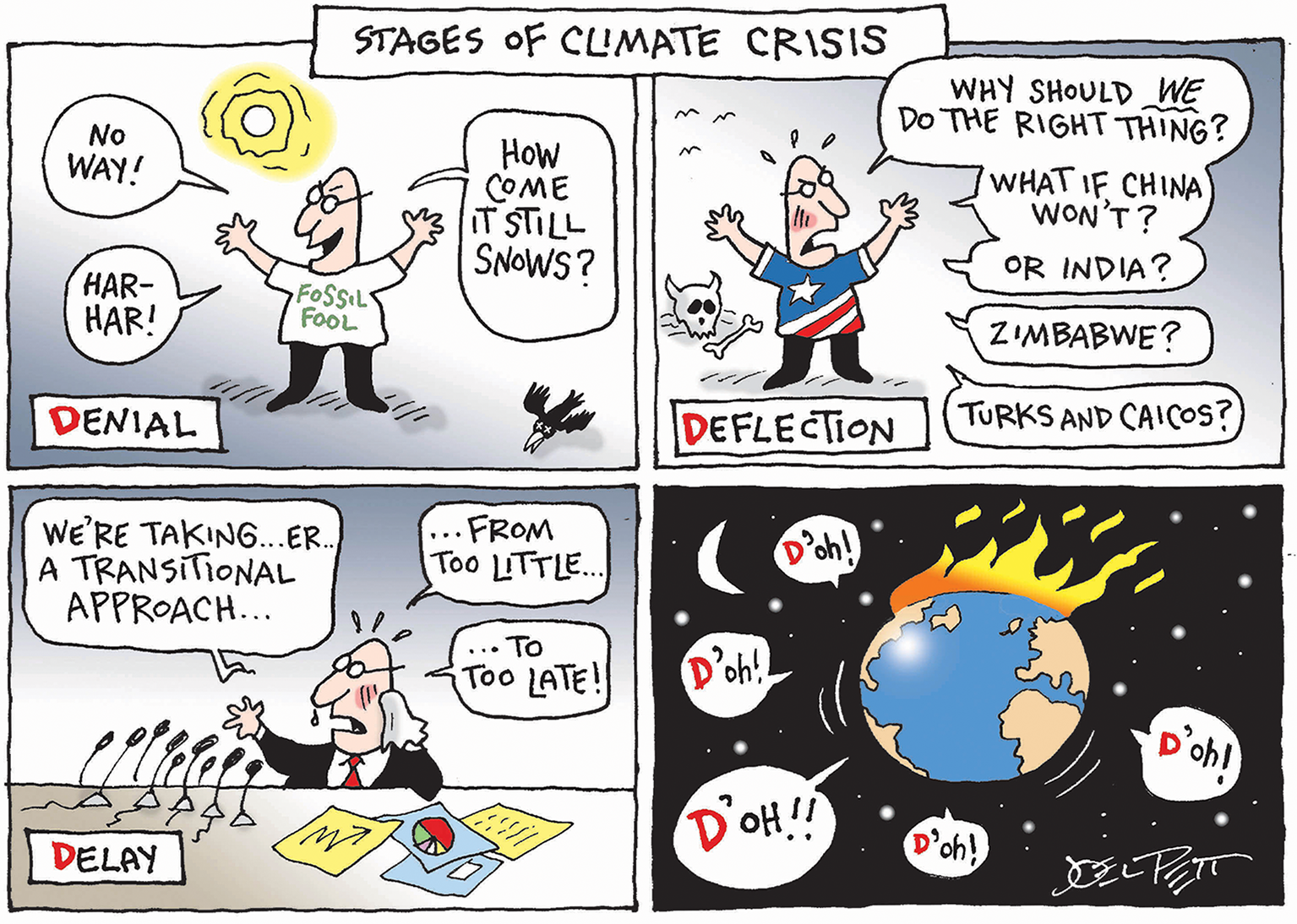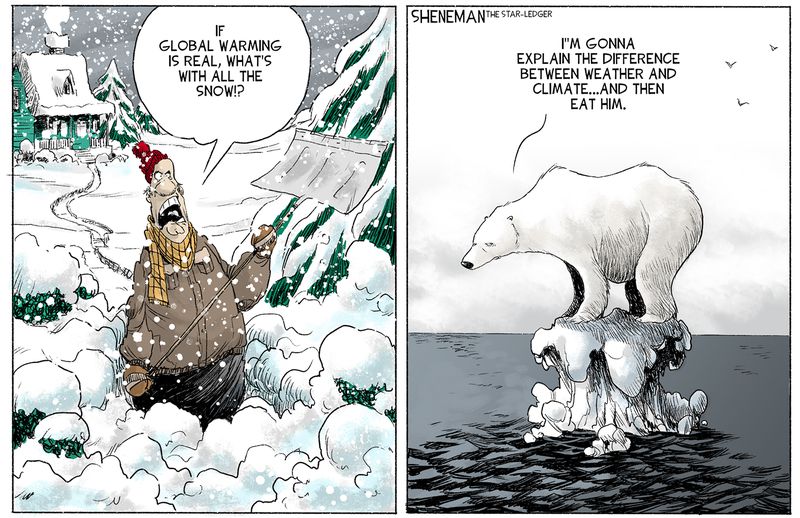A Vox article discusses the propaganda tactics, some of which were discussed several times here before, that pro-pollution companies like ExxonMobil are using to fight against doing anything about global warming. Since it's too hard to deny global warming and climate change any more, industry propaganda tactics now mostly focus on dividing, delaying, downplaying, deflecting and what I call demotivating. Vox writes:
What do you call it if it’s not climate denialism anymore? What are we facing now?
So there are other D-words. There’s delay. There’s division. Get climate advocates fighting with each other about, like, whether they’re vegans or not or whether they drive a car or not. Get climate advocates fighting with each other so you divide and conquer the movement. That’s division. Delay: “Oh, look, we can fix the problem with geoengineering, with carbon capture down the road. Trust us, we’ll be able to fix it.” So “let us continue to burn fossil fuels now. We will fix it later.” Delay. And that’s what they want. They want people disengaged on the sidelines rather than on the front lines. We see these tactics literally playing out today.There’s an article that just recently appeared in the Wall Street Journal detailing how Rex Tillerson, the former CEO of ExxonMobil, who had been lauded as the next generation of Exxon leadership — he was not a climate denier. He accepted that climate change is real — there was a real effort by Tillerson and ExxonMobil at that time to present this public face of climate acceptance — because it had already become difficult to deny it was happening. People understood it was happening. It wasn’t credible to deny it. And so it was, “Yes, we accept the science,” but the D-word here is downplaying. And in the article, the Wall Street Journal makes it very clear, based on internal documents that show a different side of ExxonMobil and Rex Tillerson, that they were actively campaigning to downplay the detrimental impacts of the climate crisis while playing up techno fixes like geoengineering.
And a lot of that would have to be on the individual because obviously, if individuals want to burn fossil fuels, this is a country where they’re going to find someone willing to help them do so. How much of the climate delayism is being pushed on the individual at this moment?
It’s a great point. And actually I would even classify that with a different D-word, what I call deflection, which is to say there’s been an effort by the same bad actors to deflect the conversation away from regulation and the needed policies which will hurt their bottom line — carbon pricing, cap and trade, what have you — to redirect the conversation against those systemic changes and policies that will hurt them financially and turn attention instead to individuals.
In the early 2000s, the very first widely used and publicized individual carbon footprint calculator, where you could calculate your carbon footprint and figure out how to change your lifestyle to make it smaller, was created and publicized by British Petroleum. British Petroleum wanted you so focused on your individual carbon footprint that you failed to note theirs.
That’s why we need policies, because individuals can’t put a price on carbon themselves. They can’t block the construction of new fossil fuel infrastructure. These are all things that only our politicians can do. And so that’s where we are today. Deflection remains one of the key tactics.
I want to ask you about another D-word that I think is related to the lack of policies that are going to make enough of a difference to save this planet. And that, of course, is doom. Climate doomerism. [One can call it demotivating]
Yeah. And doomism has actually been weaponized by bad actors to convince even environmentalists that, “Hey, it’s too late to do anything anyway, so you might as well just give up trying to solve the climate crisis.” People who are ostensible climate advocates and environmentalists insist that it’s too late, and we just have to accept our fate. There are events, like mass extinction events in the past, that some of these doomists will point to and say, “Look what happened to the dinosaurs, what happened during the so-called Great Dying 250 million years ago when 90 percent of all species died out because of a massive release of carbon into the atmosphere through an episode of massive volcanism, that’s happening today.” There are prominent actors in the climate space who are literally making this claim. And they’re doing so by misrepresenting what the record of Earth history actually tells us about those events. We are at a fragile moment. We’re not yet past the point of no return. But if we don’t take substantial action and do so immediately, then we are due for some of those potential worst-case scenarios. So it is still up to us.


No comments:
Post a Comment